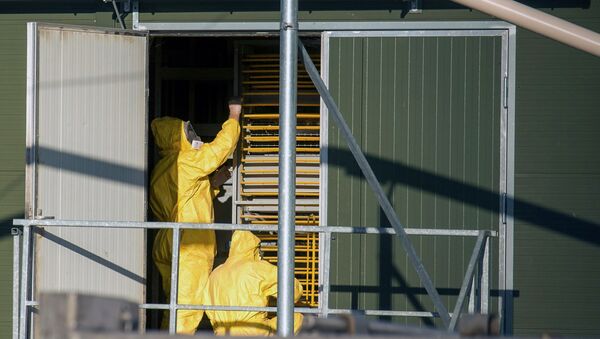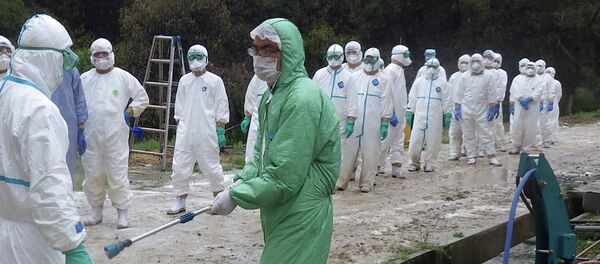According to the country’s economic ministry, about 28,000 birds were infected with avian influenza on a poultry farm at Zoeterwoude. It remains unclear whether the H5 strain the birds are infected with is of the highly pathogenic type or not, the ministry added.
Reuters reports that a ban on transporting poultry products has been imposed, and four other farms in the area are being inspected for signs of the disease.
A previous outbreak of bird flu occurred at a poultry farm in Hekendorp, where 150,000 chickens at the afflicted farm were exterminated by the authorities, according to The New York Times. The virus strain was identified as H5N8, which according to the European Center for Disease Prevention and Control in Stockholm, has never been detected in humans.
In 2003, the Dutch health authorities had to exterminate nearly 30 million birds in order to contain an outbreak of the H7N7 strain of bird flu, The Guardian points out. According to the latest Dutch statistics cited by the newspaper, there are 95 million chickens on Dutch farms, and in 2011 eggs accounted for over $13 billion in export revenue.
Some bird flu strains pose a health risk to humans, with most human contractions resulting either from being in direct contact with infected birds or from their droppings. Over 400 people were killed in the world by the H5N1 strain since it appeared in 2003, and the H7N9 strain claimed more than 170 lives since its emergence in 2013.





